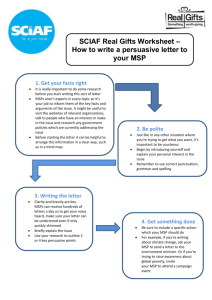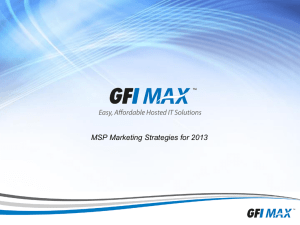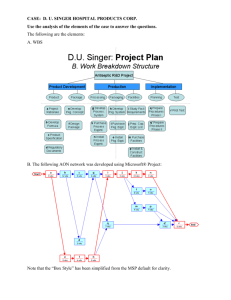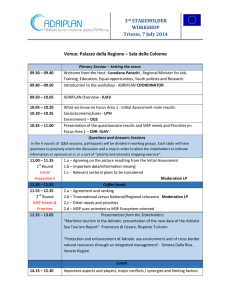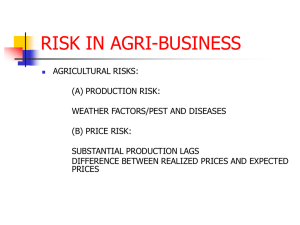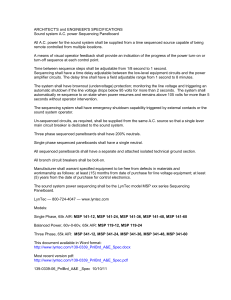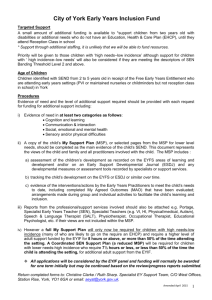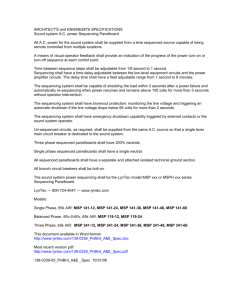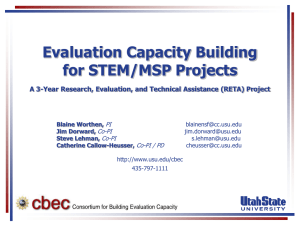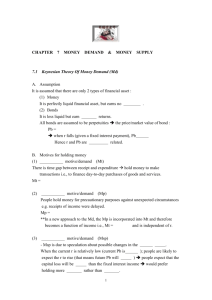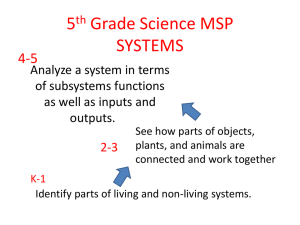Managing Successful programmes
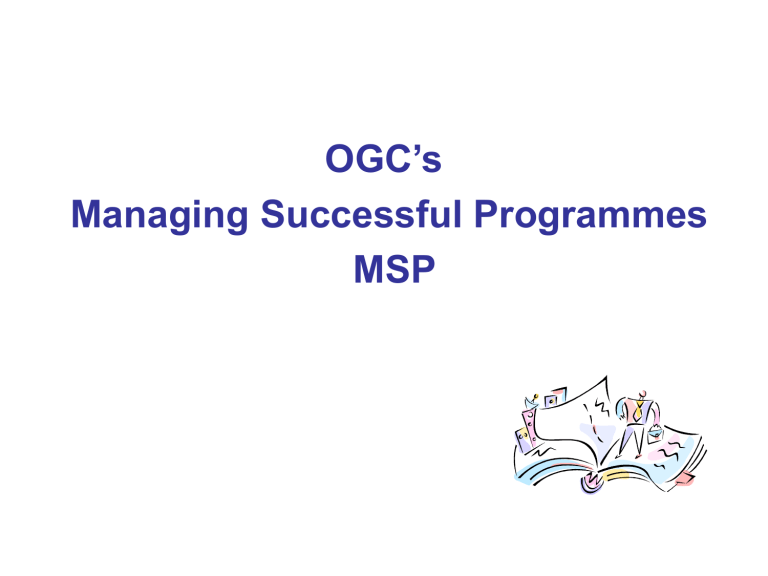
OGC’s
Managing Successful Programmes
MSP
Purpose of MSP
• To provide a framework of best practice principles and concepts for programme management drawn from latest experiences and proven practice in setting up and managing programmes.
•
To help programme management practitioners improve their decision making at programme level and to become better at implementing beneficial change.
• To provide the basis of the examination of individuals to obtain certification to show their level of knowledge and understanding of the content of MSP.
MSP is not
–
• a form of management for big projects
• a detailed guide on managing business change
• a guide to ongoing service management/management of business as usual
•
Though it should demonstrate the context of programme management in all three of these areas
MSP Principles
• Remaining aligned with corporate strategy
• Leading change
• Envisioning and communicating a better future
• Focusing on the benefits and threats to them
• Adding value
• Designing and delivering a coherent capability
• Learning from experience.
MSP Governance Themes
(Programme environment)
• Organisation (Who)
• Vision (What)
• Leadership & Stakeholder engagement (Who)
• Benefits Realisation Management (Why)
• Blueprint design and Delivery (What)
• Planning and Control (How)
• Business Case (Why)
• Risk Management & Issue Resolution (How)
• Quality management (How)
MSP Transformational Flow (Programme
Process)
Programme Mandate
Completion of programme
Identifying a programme
Programme Brief
Defining a programme
Closing a programme
Programme Definition,
Strategies and plans
Review points
Managing the tranches
Managing the portfolio
Delivering capability
Managing benefits
Realising benefits
The Programme Manager is responsible for:
• day-to-day management of the programme, including taking the programme forward from appointment (usually in “Identifying a Programme” or “Defining a Programme”), supervising and closing the programme
• day-to-day agent on behalf of the Senior Responsible Owner , for successful delivery of the new capability
• planning and designing the programme and proactively monitoring its overall progress, resolving issues and initiating corrective action as appropriate
• defining the programme’s governance framework
• effective co-ordination of the projects and their interdependencies, risks and issues
• overall integrity and coherence of the programme
• managing the programme’s budget , monitoring the expenditures and costs against benefits that are realised as the programme progresses
Key Management Info.Documents
• Business Case
MSP
• Vision statement
• Programme Brief
• Programme Mandate
• Programme preparation plan
• Programme Brief
• Blueprint
• Programme plan
• Projects Dossier
• Benefits management strategy
• Benefit profile & Realisation plan
• Strategies: Information man/Issue resolution/Monitoring/Control/Quality
/Risk man.
• Stakeholder/Communications plan
“10 Causes of Confidence”
•
•
•
•
•
1
From OGC’s Major Project Portfolio
• 2 Programme Leadership
• 3 Scope aims and benefits
4
5
• 6 Assumptions, Risks,
7
Initial Assessment
Position within a Dept.
Managing the TCQ triangle
Issues
Skills and expertise
• 8 Stakeholders
• 9 Business models
10 Managing suppliers
• Getting off on the right foot
• Having the right people
• Defining the task appropriately
• Knowing your environment
• Keeping feet on the ground
• Knowing what could go wrong
• Having the right know-how
• Appreciating who can help or harm
• Making it work for real
• Getting through to the end
